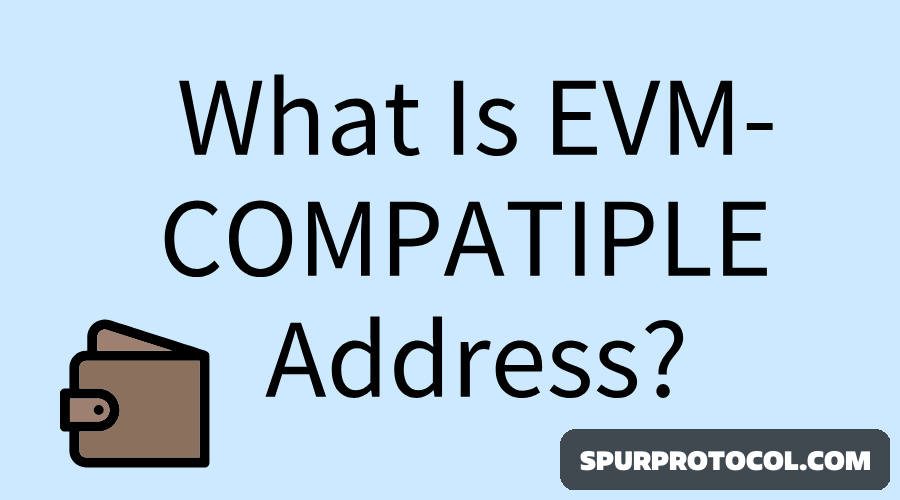Interoperability, or the lack of it, has become one of the biggest problems confronting the crypto industry. EVM compatibility goes a long way in addressing this problem, as proven by the growth of EVM-compatible blockchains such as BNB Smart Chain (BSC), Avalanche, Polygon, and many others.
This article will take a closer look at EVM-compatible blockchains, how they work, and their importance to the growth of the crypto ecosystem. We will also look at notable EMV-compatible blockchains like BNB Smart Chain.
What Is An EVM?
Before we discuss EVM-compatible blockchains, we must better understand the Ethereum Virtual Machine (EVM). The EVM is a Turing-complete runtime environment responsible for executing smart contracts on the Ethereum network. It is the backbone of the Ethereum network and processes and executes all transactions and operations on the blockchain. The EVM operates on a stack-based architecture and uses a gas system to manage network resources.
As a Turing-complete virtual machine, the EVM can execute any computational task assigned to it as long as the task is within gas limits. This ensures greater security and predictability. Similar to the Java Virtual Machine (JVM), the EVM executes bytecode, a series of instructions packaged within transactions that modify the state of the network.
The EVM functions on a stack-based architecture featuring a 256-bit word size optimized for cryptographic operations. These cryptographic operations, such as hashing and elliptic curve calculations, play a crucial role in securing transactions. The EVM interprets smart contracts written in Vyper or Solidity and converts them into bytecode. When transactions are initiated, the EVM loads the transaction data and a specific amount of gas used to perform the transaction/operation. If the gas is depleted before the completion of the transaction, the transaction is stopped and declared invalid. As a result, the state of the network is rolled back to what it was prior to the transaction attempt.
What Is An EVM-Compatible Blockchain?
As the name suggests, EVM-compatible blockchains are blockchain networks compatible with Ethereum. As blockchains evolved, interoperability became a growing issue that needed to be tackled. EVM compatibility became crucial for blockchain networks as it enabled developers to leverage Ethereum and the tools within its ecosystem to create and deploy their applications on multiple networks. EVM-compatible blockchains obey the same standards and protocols as the Ethereum blockchain.
EVM compatibility allows blockchains to run Ethereum-based smart contracts and dApps without requiring modifications. Blockchains become EVM-compatible by adhering to the same consensus mechanisms and transaction formats as Ethereum and using the same programming languages.
Characteristics Of EVM-Compatible Blockchains
Now that we better understand EVM and EVM-compatible blockchains, let’s examine some of their core properties.
Scalability
Scalability is one of the most important characteristics of EVM-compatible blockchains. Most are designed specifically to address the scalability issues plaguing Ethereum, offering faster transaction speeds at lower costs, catering to the growing demand for highly efficient blockchain solutions.
Developer-Friendly
EVM-compatible blockchains offer developers a familiar environment in which to work. Because of their shared tools and programming languages, developers experienced in working with Ethereum will find such blockchains easy to adapt and use. This encourages developers to actively explore and build on these chains.
Interoperability
Interoperability is one of the primary functions of EVM-compatible blockchains. It enables seamless interactions within the Ethereum ecosystem to create a network of interconnected blockchains. This allows users to conduct transactions across chains, share data, and transfer assets between chains.
Low Cost
EVM-compatible blockchains reduce costs by offering developers a standardized environment. Developers can write the code once and deploy it across EVM-compatible chains without requiring a separate codebase for each chain. Additionally, the code is written in Solidity, making the learning curve much lower.
BNB Smart Chain (BSC)– An EVM-Compatible Chain
BSC is one of the best performing EVM-compatible chains in the market, in no small part due to a number of innovations and infra choices.
#1 EVM Client Diversification
BNB Smart Chain (BSC) primarily relies on three clients: Geth, Erigon, and Reth. Erigon, with its advanced storage model, differs from Geth in terms of efficiency and structure. By running alongside Geth, it aids in identifying potential bugs within Geth's implementation, enhancing overall network reliability.
The recently introduction of the Rust-based Reth client offers several advantages:
Increased Security: With a different codebase, Reth enhances the network's resilience to attacks.
Improved Efficiency: Designed for better storage efficiency, Reth surpasses Geth in resource management.
Increased Scalability: Reth can seamlessly integrate with tools like Revmc and Execution Extensions, boosting scalability.
Greater Decentralization: Focused on community governance, Reth promotes a more decentralized BNB Chain.
By diversifying clients, BNB Chain can ensure greater security, scalability, and decentralization, reinforcing its infrastructure for the future.
#2 Fast Finality
Block finality refers to the point at which a transaction is considered irreversible on a blockchain, ensuring security by preventing double-spending. BNB Smart Chain (BSC) enhances this process with Fast Finality, introduced with the BEP-126 update, to reduce latency and increase transaction efficiency.
By combining Proof-of-Stake Authority (PoSA) with Byzantine Fault Tolerance (BFT), BSC now finalizes transactions in around 7.5 seconds, down from the previous 45 seconds.
